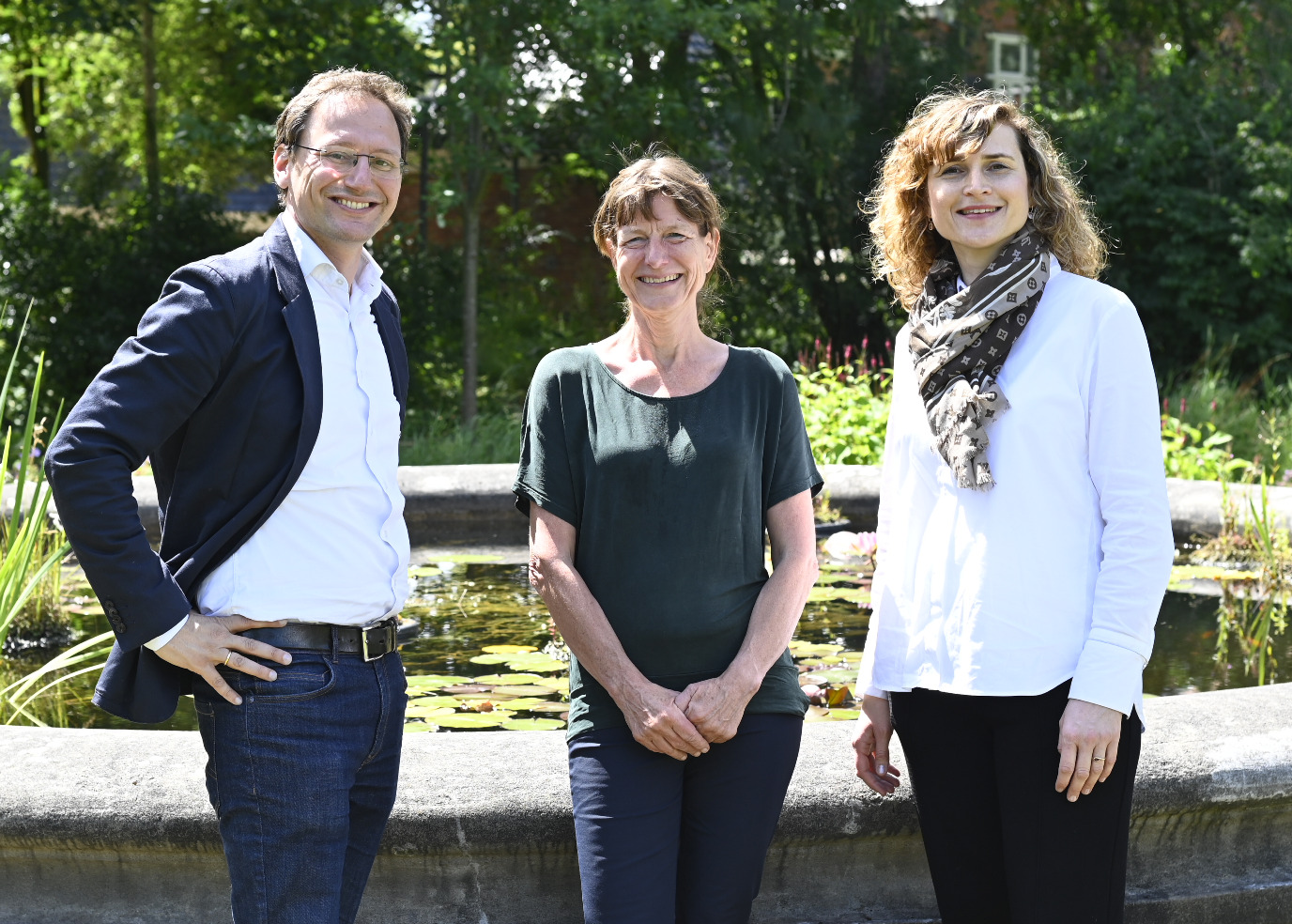12 miljoen euro voor onderzoek naar impact groene waterstof

Een consortium dat onderzoek doet naar de sociaaleconomische impact van waterstof met onder andere onderzoekers van de Rijksuniversiteit Groningen heeft 12 miljoen euro toegekend gekregen van wetenschapsfinancier NWO.
Het consortium "Hy-SUCCESS: Social, User aCCeptable, Economically Sustainable Systems for hydrogen" gaat waterstof interdisciplinair bestuderen vanuit het perspectief van techniek, bedrijfsleven, recht, gedragswetenschappen en industrie.
Medewerkers van de Rijksuniversiteit Groningen gaan onderzoek doen naar de rol van energierecht en milieupsychologie. Goda Perlaviciute, Linda Steg (allebei werkzaam bij de afdeling milieupsychologie binnen de faculteit gedrags- en maatschappijwetenschappen) en Lorenzo Squintani (faculteit rechtsgeleerdheid en directeur van de Wubbo Ockels School voor Energie en Klimaat) zullen het onderzoek uitvoeren, samen met een aantal postdocs en PhD's. Patricia Poppendick, projectcoördinator waterstof bij de Wubbo Ockels School van de RUG, is verantwoordelijk voor het projectmanagement.
Linda Steg wordt projectleider van Hy-SUCCESS en zegt dat inzichten uit de gedragswetenschappen een groot verschil maken. Het gaat om de vraag of waterstof breed geaccepteerd wordt, of slechts een klein aandeel krijgt in de markt voor duurzame energie. "Waterstof zal niet op grote schaal worden geïmplementeerd als mogelijke zorgen van het publiek en juridische barrières niet goed worden weggenomen."
Lorenzo Squintani zegt dat er momenteel gevallen zijn waarin bedrijven groene waterstof willen gebruiken, maar geen duidelijk wettelijk pad hebben om te volgen. Bouwbedrijven willen bijvoorbeeld groene waterstof gebruiken om hun bouwmachines van brandstof te voorzien, zodat ze geen stikstof hoeven uit te stoten. Maar ze kunnen geen vergunning krijgen voor kleine bovengrondse opslagtanks, omdat er geen specifieke vergunningsprocedure is. Daardoor zijn ze helaas gedwongen om diesel te blijven gebruiken.
Squintani: "Voor mij is de honorering van dit project een prachtige erkenning van de leidende rol van de Rijksuniversiteit Groningen in de sociaaleconomisch-juridische dimensie van de energietransitie in Nederland, in dit geval specifiek voor waterstof."
Vanuit psychologisch en juridisch perspectief "is de introductie van waterstof een enorme maatschappelijke uitdaging en het is van cruciaal belang om te begrijpen wat dit betekent voor de bevolking als geheel en hoe het moet worden gereguleerd", zegt Goda Perlaviciute.
Het project zal 5 subtaken hebben, waarbij elk thema door een ander instituut wordt geleid:
-
Systeemmodellen en de rol van waterstof in het toekomstige energie- en grondstoffensysteem (leiding: Universiteit Utrecht en HAN Hogeschool)
-
Markten en bedrijfsmodellen (leiding: TU Delft en Centrum Wiskunde & Informatica)
-
Wettelijk kader, beleidsmaatregelen en publieke waarden (lead: Rijksuniversiteit Groningen en Hanzehogeschool Groningen)
-
Publieke acceptatie van waterstofsystemen (leiding: Universiteit Leiden en Universiteit Utrecht)
-
Integratie, coördinatie en verspreiding van onderzoek (leiding: Rijksuniversiteit Groningen en Universiteit van Tilburg)
Het voorstel om sociaaleconomische impact op te nemen is het enige niet-technische academische aspect binnen GroenVermogenNL, dat onderdeel is van het Nationale Groei Fonds. GroenVermogenNL zet door heel Nederland waterstofproefprojecten, onderzoeksprojecten en onderwijsprogramma's op om de samenwerking tussen investeerders, onderzoekers en docenten te vergroten.
Naast de Rijksuniversiteit Groningen bestaat het consortium uit 10 universiteiten, 2 onderzoeksinstituten, 5 hogescholen, een onderzoeks- en technologieorganisatie en 3 industriële partners. Henk Akkermans van Tilburg University zal optreden als technisch manager van het project.
Meer nieuws
-
17 februari 2026
Van ghostbuster tot rampenonderzoeker
-
03 februari 2026
‘Daar zit een goeie kop op’
-
20 januari 2026
Alcohol, appen en e-bikes
